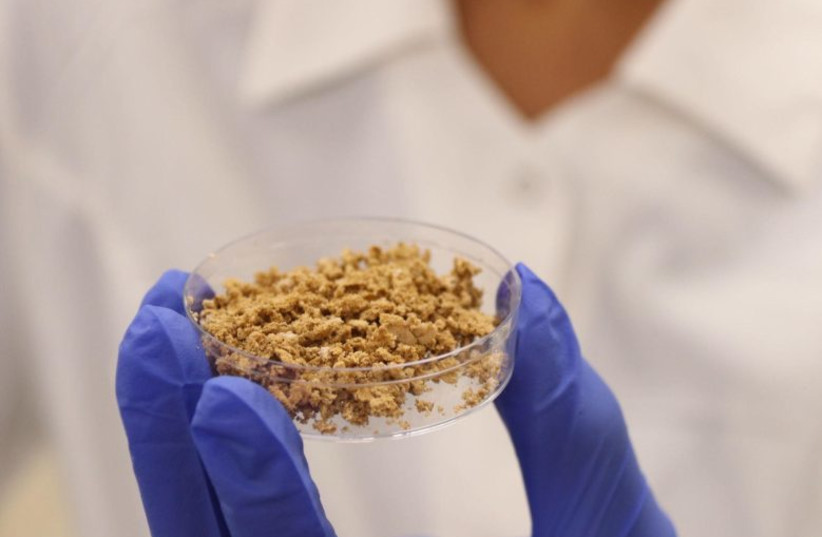Israel’s cell-based coffee: Sustainable solution to brewing industry challenges?
Due to climate change, within the next two decades, there is an expected 50% reduction in areas suitable for growing coffee.
The Israeli biotech company Pluri has developed a transformative cell-based coffee that can be grown without causing environmental harm.
The coffee is produced using Pluri’s 3D cell expansion technology as part of its “PluriAgtech” business vertical that the company says aims to create more eco-friendly alternatives to traditional farming methods. If the coffee makes it onto the market, it could solve several of the critical challenges faced by the industry.
The coffee industry faces several issues, Pluri CEO Yaky Yanay explained. The first is that, due to climate change within the next two decades, there is an expected 50% reduction in areas suitable for growing coffee.
“Because of the change in temperatures, many areas suitable for growing coffee today will not be available anymore. We are already starting to see this in parts of Africa,” Yanay said. “This would mean a significant reduction in capacity to supply coffee.”
Existing production methods contribute significantly to carbon emissions, and anticipated regulations could exert additional pressure on producers.

Company estimates cell-based coffee uses only 2% the water of conventional coffee
In addition, coffee requires a high volume of water to grow – as much as 140 liters for every cup of coffee we drink.
In contrast to conventional coffee production methods, the company said that Pluri’s cell-based coffee is projected to reduce water consumption by an impressive 98%.
Finally, against this challenging backdrop, coffee consumption has surged by 60% in the last 30 years and is expected to triple by 2050.
“I believe our technology can fill in the gap in a relatively timely manner,” Yanay said.
Pluri, formerly known as Pluristem Therapeutics, has boldly entered the food technology market over the past two years. Yanay said it has now proved that its bioreactor platform can effectively grow human, animal, and plant cells to scale.
Last year, the company announced the launch of Ever After Foods, a partnership with Tnuva, which uses Pluri’s platform to transform cells into cultivated meat products for the mass market.
Last week, ICL Open unveiled a collaboration with Pluri to pioneer advanced bioactive carriers and biostimulants. This partnership aims to leverage natural delivery mechanisms within plants, boosting crop yields and fostering sustainability in agriculture.
“Pluri’s unique cell line manufacturing technology is ideal for such development, and the marriage with ICL’s mineral and biological plant nutrition solutions holds promise for a breakthrough in this field,” ICL wrote on its LinkedIn page. “The resultant technological platform is expected to produce multiple novel plant nutrition solutions in the future.”
Yanay said he was approached about entering the coffee industry about six months ago, but initially did not see a reason to try it. However, when he learned about coffee growers’ challenges, his perspective changed.
Now, the company extracts cells from the coffee plant and grows them in its bioreactor system. Pluri has complete control of the process and profile.
When the cells leave the bioreactor, they look like instant coffee. Consumers can add boiled water and drink.
First cups tasted like Americano/drip, but other types of coffee to come
“I was shocked by the taste,” Yanay admitted. “It tastes just like coffee.”
He said the first cups tasted like a Cafe Americano or traditional drip coffee. However, he said that the platform should be able to produce all kinds of coffee types and flavors.
The company aims to spin out its cell-based coffee as a new subsidiary, concentrating on advancing products, technologies, and intellectual property within the coffee industry.
Yanay said Pluri had already identified a regulatory process that is relatively short and a clear pathway to approval.
“We might want to bring in strategic or financial investors, but we also want the flexibility to work with all global players and not commit to one,” Yanay said. “We are ensuring this company can work with the whole industry.
“We are doing quite amazing things with cells, but this is one of the most unique. We live in interesting times.”


No comments:
Post a Comment
Stick to the subject, NO religion, or Party politics